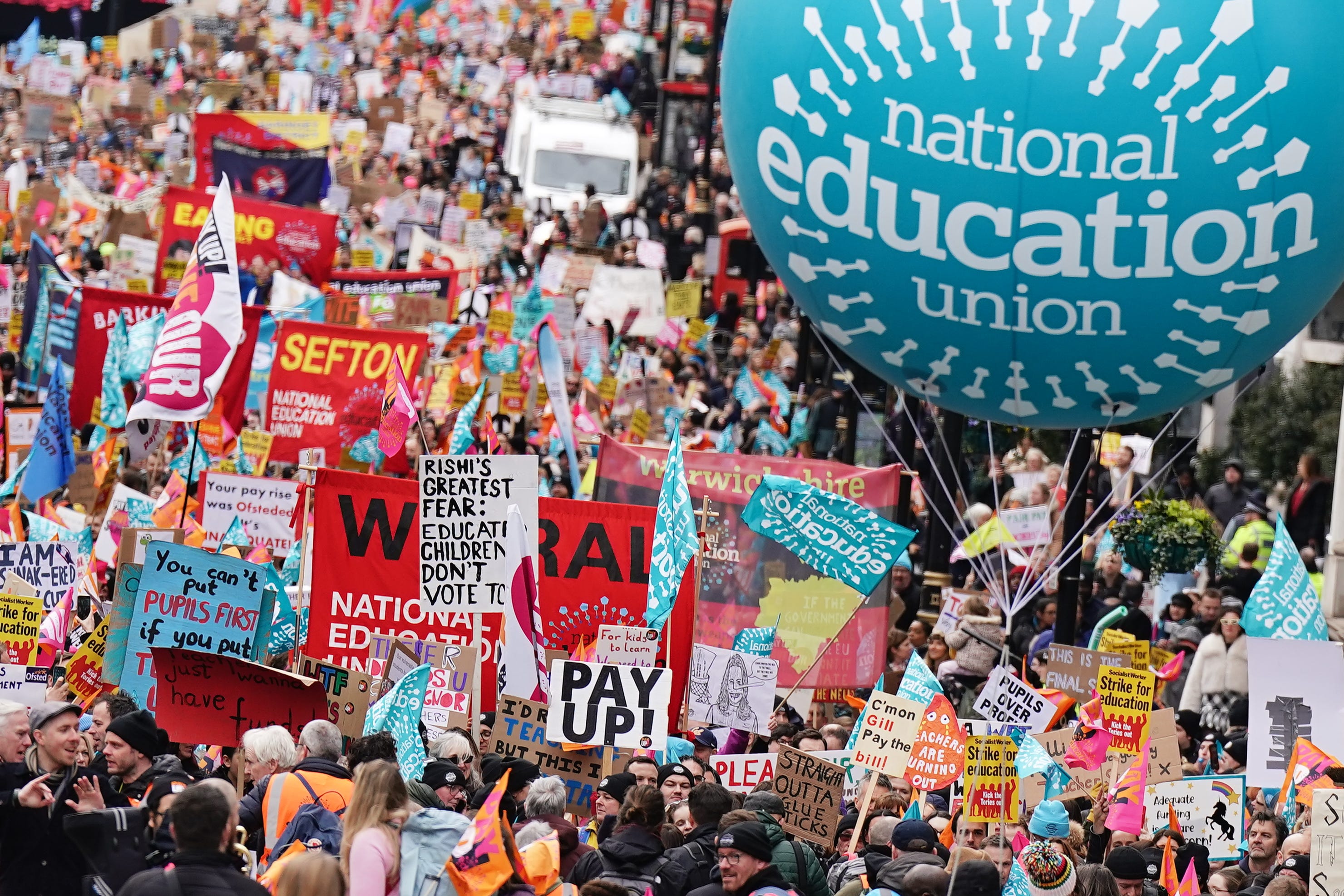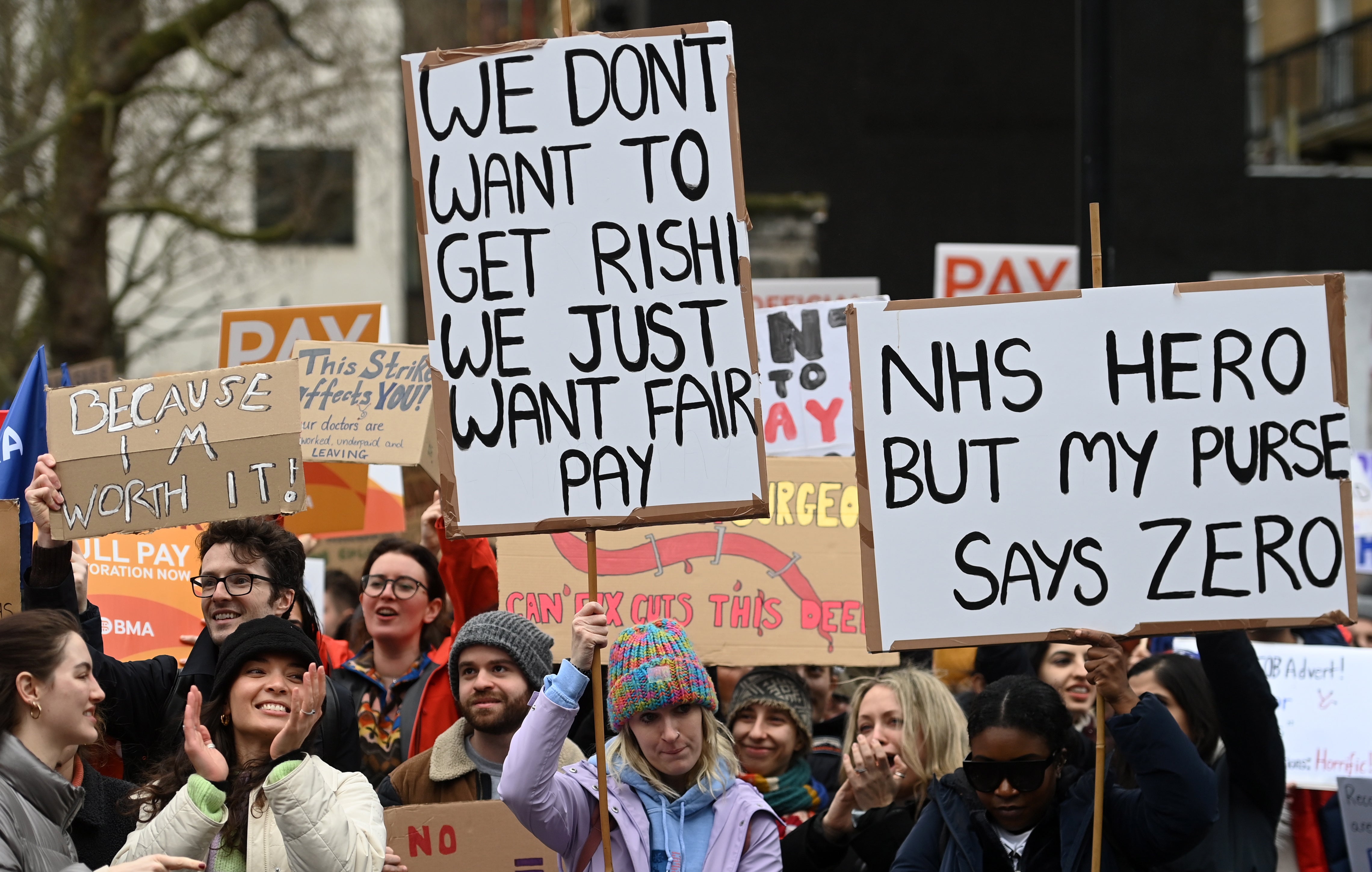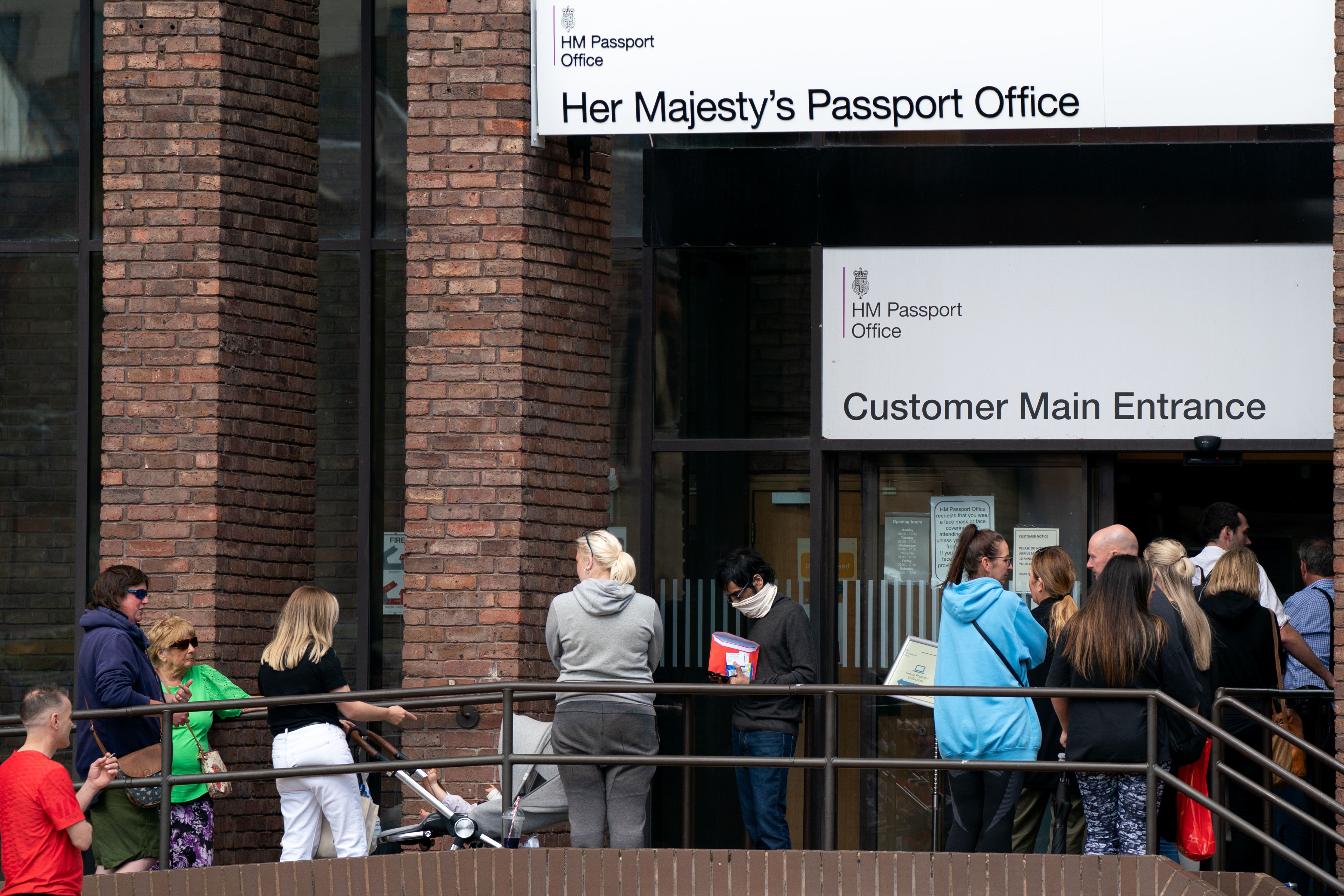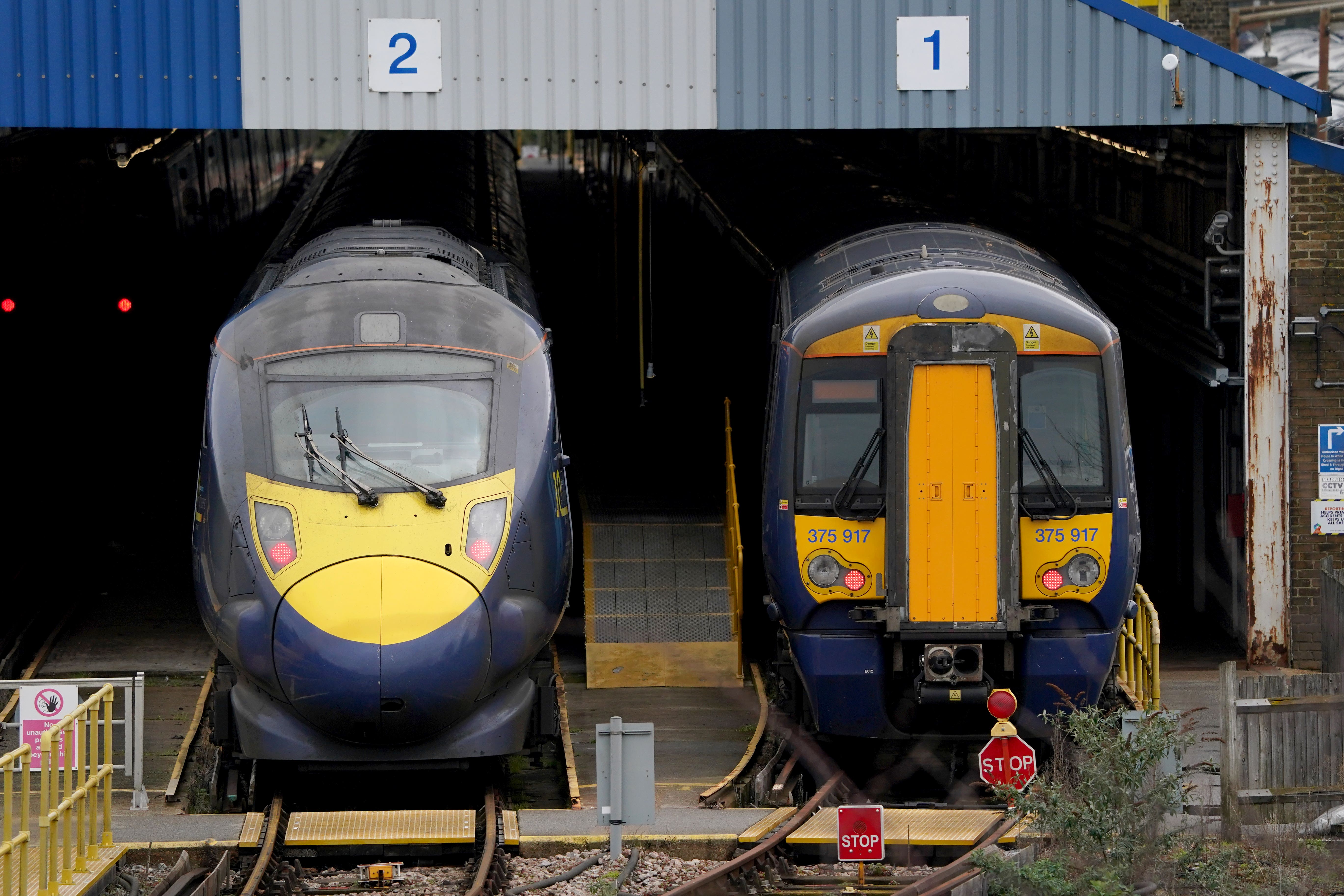Strike Britain: Who is striking and is there a resolution in sight?
There have been breakthroughs in some sectors while others continue with industrial action
Your support helps us to tell the story
From reproductive rights to climate change to Big Tech, The Independent is on the ground when the story is developing. Whether it's investigating the financials of Elon Musk's pro-Trump PAC or producing our latest documentary, 'The A Word', which shines a light on the American women fighting for reproductive rights, we know how important it is to parse out the facts from the messaging.
At such a critical moment in US history, we need reporters on the ground. Your donation allows us to keep sending journalists to speak to both sides of the story.
The Independent is trusted by Americans across the entire political spectrum. And unlike many other quality news outlets, we choose not to lock Americans out of our reporting and analysis with paywalls. We believe quality journalism should be available to everyone, paid for by those who can afford it.
Your support makes all the difference.Workers and the Government have announced breakthroughs in certain sectors after months of strikes across multiple industries - although industrial action still continues for many.
Teaching unions and the government have agreed to hold “intensive talks” on teacher pay, conditions and workload reduction, after a breakthrough on NHS pay saw health worker strikes suspended.
Education unions have agreed to “create a period of calm for two weeks during which time they have said no further strike dates will be announced” as they hold intensified talks with the government.
Meanwhile, the offer to some health workers – backed by the Royal College of Nursing, the GMB and Unison – includes a one-off lump sum for 2022-23 that rises in value up the NHS pay bands, as well as a permanent 5 per cent rise on all pay points for 2023-24.
Union members will now vote on whether to accept the deal, with workers expected to consider the detail over the coming days and weeks.
But it came as the Public and Commercial Services (PCS) union announced that HM Passport Office staff will strike for five weeks from the start of April – potentially leaving more than one million passport applications stuck in a bottleneck of applications.
And train services continue to be hit by industrial action, with members of the Rail, Maritime and Transport union (RMT) at train operators walking out in the long-running dispute over pay, jobs and conditions on Saturday.
Teachers
The Government and education unions have agreed to hold “intensive talks” on the issues which have sparked a series of strikes by teachers in recent months.

The talks, which will focus on pay, conditions and workload reduction, will involve unions including the National Education Union (NEU), whose members were on strike in England earlier this week.
A joint statement by the Government and education unions said: “The Government and the education trade unions, Association of School and College Leaders, National Association of Head Teachers, NASUWT and National Education Union, have agreed to move into a period of intensive talks. The talks will focus on teacher pay, conditions and workload reduction.
“In order for talks to begin and, we hope, reach a successful conclusion, the NEU has confirmed it will create a period of calm for two weeks during which time they have said no further strike dates will be announced.
“The Education Secretary and all unions will meet today, beginning intensive talks, which will continue over the weekend.”
NHS
After months of strikes, there was a breakthrough in the NHS dispute on Thursday, with leaders of nurses, ambulance crews and other health workers agreeing to suspend further industrial action while ballots are held on a new pay offer.
Thursday’s offer for some NHS staff – backed by the Royal College of Nursing, the GMB and Unison – includes a one-off lump sum for 2022/23 which rises in value up the NHS pay bands as well as a permanent 5% rise on all pay points for 2023/24.
It followed days of talks between health unions and the Government, raising hopes the long-running dispute could be brought to an end.
Union members will now vote on whether to accept the deal, with workers expected to consider the detail over the coming days and weeks.
Meanwhile, leaders of junior doctors want an early meeting with Health Secretary Steve Barclay to help resolve their pay dispute, which led to a three-day walkout this week.

The co-chairman of the British Medical Association’s (BMA) junior doctors committee told BBC Radio 4’s Today programme the meeting to discuss a pay rise could happen as soon as Friday afternoon.
Dr Vivek Trivedi said he hopes talks with Steve Barclay can begin soon.
The union is demanding “pay restoration” for junior doctors, who can have many years’ experience and make up about 45 per cent of the medical workforce.
It says their pay has fallen in real terms by 26 per cent since 2008/09 and reversing this would require a 35.3 per cent pay rise.
Passports
The Public and Commercial Services (PCS) union has announced a five-week strike by its members in the Passport Office in an escalation of its long-running dispute with the Government over pay, pensions, jobs and conditions.
Those working in Durham, Glasgow, Liverpool, London, Newport, Peterborough and Southport will walk out from April 3 to May 5, while those in Belfast will strike from April 7 to May 5.

PCS general secretary Mark Serwotka said: “This escalation of our action has come about because, in sharp contrast with other parts of the public sector, ministers have failed to hold any meaningful talks with us, despite two massive strikes and sustained, targeted action lasting six months.
“Their approach is further evidence they’re treating their own workforce worse than anyone else. They’ve had six months to resolve this dispute but for six months have refused to improve their 2 per cent imposed pay rise, and failed to address our members’ other issues of concern.
“They seem to think if they ignore our members, they’ll go away. But how can our members ignore the cost-of-living crisis when 40,000 civil servants are using foodbanks and 45,000 of them are claiming the benefits they administer themselves?
“It’s a national scandal and a stain on this Government’s reputation that so many of its own workforce are living in poverty.”
Trains
Train services are being hit by strikes again, following months of industrial action.
Members of the Rail, Maritime and Transport union (RMT) at train operators will walk out in a long-running dispute over pay, jobs and conditions on Saturday.
This has affected operators such as CrossCountry, Great Western Railway, Northern and Southeastern.

Many operators will only run trains for limited hours.
Those not involved in the dispute will see no major impact, but their services could be busier than normal due to timetable cuts elsewhere.
Across Britain in Thursday’s walk out, between 40 to 50 per cent of normal weekday services were expected to run, but some areas had no trains all day.
RMT general secretary Mick Lynch said the dispute is “stuck in a deadlock” because the latest offer is “underfunded”.
The Rail Delivery Group, which represents train operators, claimed the RMT has “blocked the chance to resolve this dispute” by not putting the latest offer to a vote of its members.
A Department for Transport spokesperson urged the RMT to “put the Rail Delivery Group’s very fair offer to a democratic vote of their members”.




Join our commenting forum
Join thought-provoking conversations, follow other Independent readers and see their replies
Comments